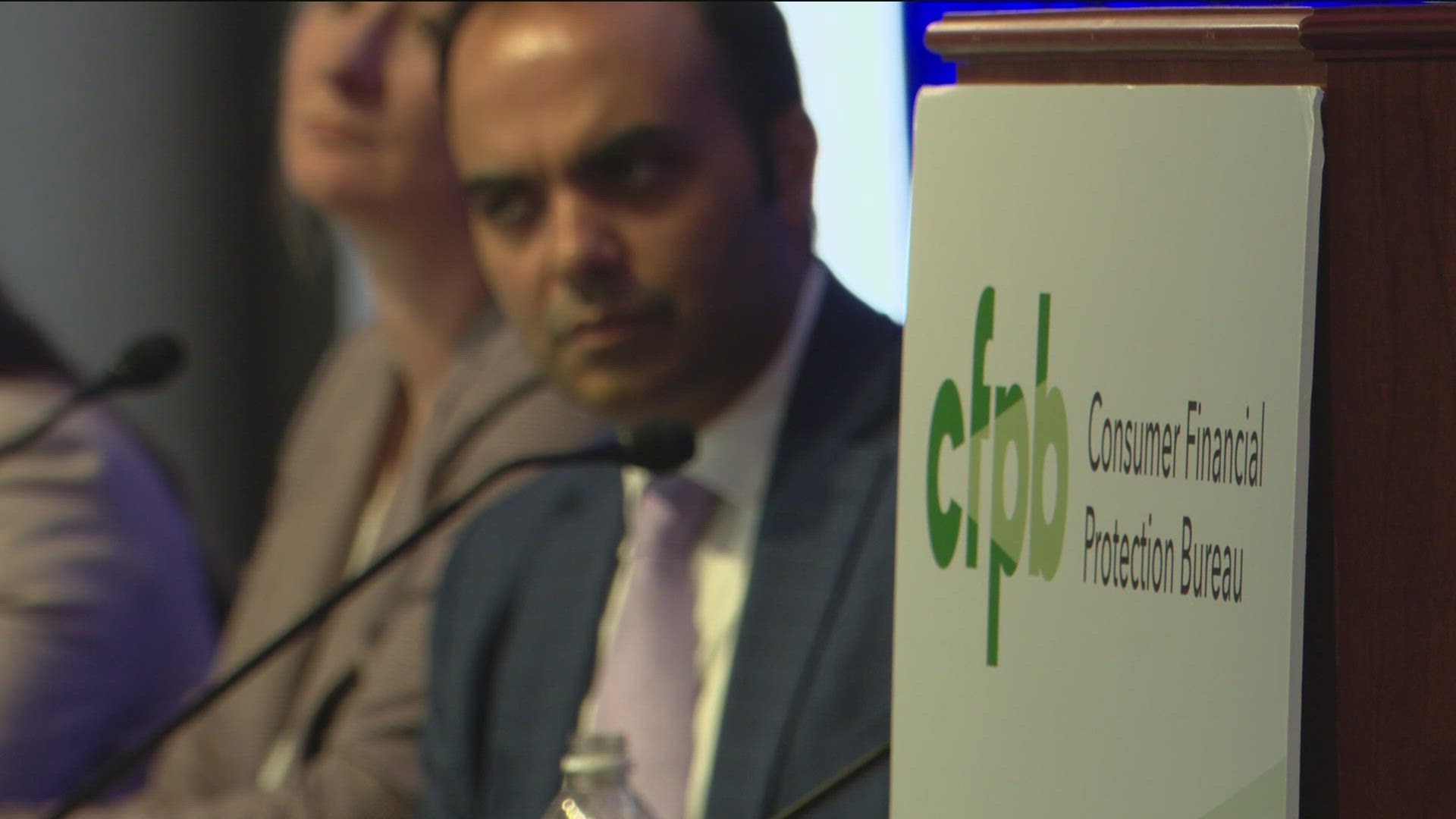ST PAUL, Minn. — The head of the Consumer Financial Protection Bureau (CFPB) made a stop in Saint Paul on Tuesday for a field hearing on predatory home lending practices involving "contracts for deed," which the agency said has disproportionately targeted immigrant communities in the Twin Cities.
Along with the hearing on the campus of the University of St. Thomas, the CFPB issued an advisory opinion on Tuesday clarifying that federal mortgage protections under the Truth in Lending Act also apply to contracts for deed, an arrangement in which the buyer purchases directly from the seller over a period of time without using a mortgage from a bank.
Known by various names throughout the country, including "rent-to-own," these contracts for deed often carry inflated prices and lack the oversight of a mortgage or lease agreement.
"Many people who peddle this product, they think they can sidestep federal mortgage protections," CFPB Director Rohit Chopra, a Biden appointee, told KARE 11 in an interview. "We issued a new legal opinion today to make it fundamentally clear that those longstanding consumer protections apply."
This issue concerning contracts for deed exploded onto the radar of state and federal lawmakers two years ago, when the local nonprofit Sahan Journal worked with ProPublica to publish an investigation on the lending practices. Since then, Minnesota Attorney Keith Ellison has pursued legal action related to contracts for deed, the state legislature has passed new protections and U.S. Senator Tina Smith has introduced legislation with a Republican co-sponsor at the federal level.
According to a report also made public Tuesday, contracts for deed have made a "resurgence" in recent years with 1,800 signed in Minnesota in 2021 alone. These types of contracts have specifically targeted the Somali community, the CFPB said, where families may have lower credit or can't pay interest rates due to Muslim religious practices. (A contract for deed actually does involve interest rates, but the CFPB said these can sometimes be "hidden" or "undisclosed," giving the perception to some buyers that they can bypass interest.)
"We initially found some of this targeting the local Somali community here," Chopra said. "As we heard in testimony from others across the country, there are problems in other cities and we want to stop it before it spreads further."
As part of its legal opinion issued Tuesday, the CFPB clarified that any buyer engaging in a contract for deed "will also generally be entitled to the protections associated with residential mortgage loans" under the Truth in Lending Act. That means sellers must ensure that a buyer can afford the home, must disclose all financial terms, and must avoid "balloon payments" that involve large lump sums at the end of a deal.
Fartun Weli, the CEO of Isuroon, works with Somali families in the Twin Cities. She told KARE 11 that she knows of at least 150 families who have fallen victim to contract-for-deed agreements. She said lenders are taking advantage of the desire to achieve the American dream, by preying on Muslim families that can't pay interest rates due to religious practices, have large families and lower credit, and may face a language barrier.
"The contract-for-deed scammers are coming and saying, 'oh, you don't have to pay interest, but you can put so much forward.' Families buy the house, not reading the contract because of so many barriers in language," Weli said, "then they buy the home, put $100,000 or $200,000 in, and within a few months they're evicted because they cannot pay."
Weli said the consequences can be "devastating."
"They're taking advantage of a gap," Weli said.

